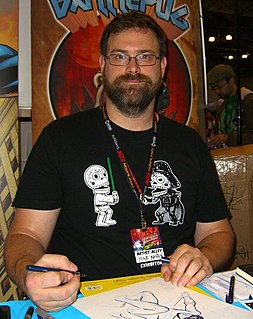A Quote by Elie Wiesel
A destruction, an annihilation that only man can provoke, only man can prevent.
Quote Topics
Related Quotes
So long as men desire to live together, no man may initiate the use of physical force against others. . . . When a man attempts to deal with me by force, I answer him by force. It is only as retaliation that force may be used and only against the man who starts its use. No, I do not share his evil or sink to his concept of morality: I merely grant him his choice, destruction, the only destruction he had the right to choose: his own.
There could be joy in destruction, too, couldn't there? Isn't Jesus Christ's Second Coming supposed to occur only after a lot of unmitigated destruction? But again, human history is fraught with tragedies in which man spared no effort to destroy with millenarian joy, only to learn that no messiah appeared afterwards.
Only the power of unbounded love practiced in regard to all human beings can defeat the forces of interhuman strife, and can prevent the pending extermination of man by man on this planet. Without love, no armament, no war, no diplomatic machinations, no coercive police force, no school education, no economic or political measures, not even hydrogen bombs can prevent the pending catastrophe.
Feuerbach ... recognizes ... "even love, in itself the truest, most inward sentiment, becomes an obscure, illusory one through religiousness, since religious love loves man only for God's sake, therefore loves man only apparently, but in truth God only." Is this different with moral love? Does it love the man, this man for this man's sake, or for morality's sake, for Man's sake, and so-for homo homini Deus-for God's sake?
The tenets of [the Christian life] seem paradoxes to carnal men; as first, that a Christian is the only freeman, and other men are slaves; that he is the only rich man, though never so poor in the world; that he is the only beautiful man, though outwardly never so deformed; that he is the only happy man in the midst of all his miseries.
One of the greatest evils is the foolishness of a good man. For the giving man to withhold helping someone in order to first assure personal fortification is not selfish, but to elude needless self-destruction; martyrdom is only practical when the thought is to die, else a good man faces the consequence of digging a hole from which he cannot escape, and truly helps no one in the long run.
































